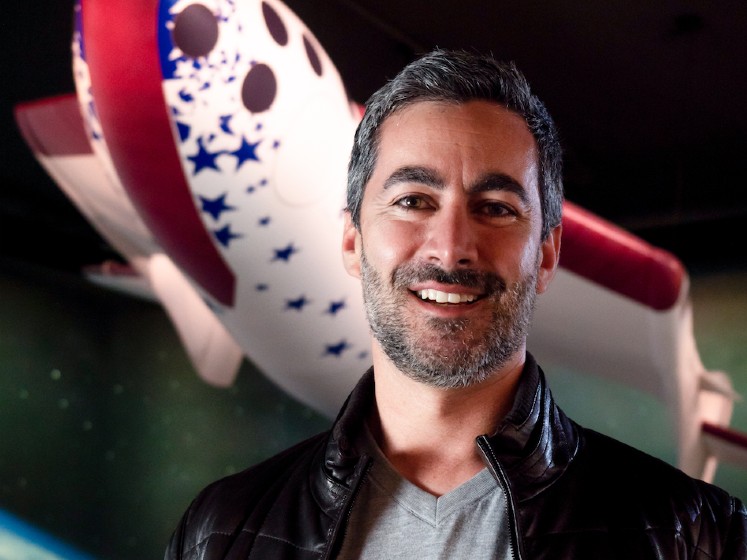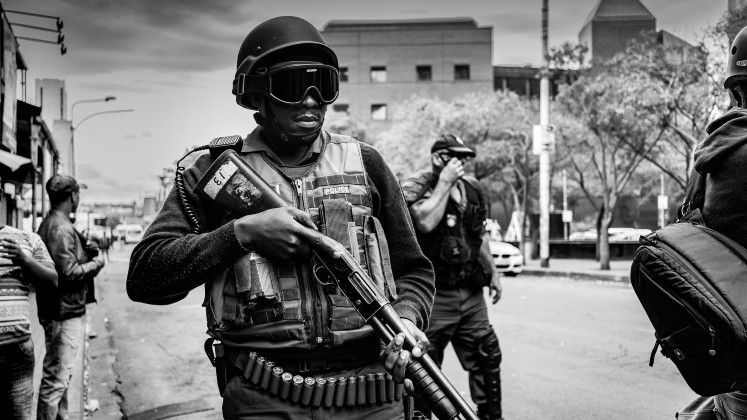 Who are Putin’s foot soldiers in Ukraine? Who are his police officers who punish anti-war protesters? Very often, liberal democracies have little knowledge of the deep and century-long divisions in society that find their institutional reflection in the machinery of state repression, writes Tomila Lankina.
Who are Putin’s foot soldiers in Ukraine? Who are his police officers who punish anti-war protesters? Very often, liberal democracies have little knowledge of the deep and century-long divisions in society that find their institutional reflection in the machinery of state repression, writes Tomila Lankina.
This piece was originally published on LSE British Politics and Policy blog.
‘Were they brutal’? I asked my brother who was grabbed at the anti-war protest and taken into custody in the Basmannyy OVD (police division).
‘What do you mean’? Asked my brother.
‘I mean, were they rough, were they insulting and beating people up’?
‘No’, he said, ‘The police bloke who spoke to me was reasonably amicable, he said that it is late at night; he just wanted to go home’.
‘Did they give you food and drink’? I asked.
‘No’, he said. ‘There was a coffee machine dispenser, but even the policemen had to insert money to use it’.
As I took stock of the response of Russians on different sides of the ‘barricades’ – of a metaphorical, mental kind – I thought about the sinister banality of the machinery of Putin’s state. Few of us political scientists have asked who are the people who beat up and interrogate protesters, and who now fight as foot soldiers this senseless war?
We think of them in terms of institutions. We see the National Guard, the special forces, the police, the army. We don’t see the god forsaken towns they come from, with filthy mud roads, no jobs, no prospects. We don’t see them as people who drink and who ‘degrade’ (degradiroval) – a word I first heard about an alcoholic uncle whom I came to visit in my ancestral village in the Samara region on the Volga. Or as clerks on miserable salaries in the police depot with the machine that dispenses coffee if you insert a coin. We don’t see men who’ve lost the dignity of reasonable income and a stable life. And we forget that for these men, the job as a police clerk, as a knight in shiny armour brandishing his baton during protests is the passageway into the respectability of middle classdom. These are people who can’t simply escape into a well-paying profession or a business that ‘insulates’ them from the excessive pressure of the state who holds the purse-strings of their income.
I can’t help thinking of another context: Weimar Germany. There is a book by Hans Speier called German White-Collar Workers and the Rise of Hitler. It is about the new middle class who felt inferior to the old bourgeoisie – the clerks in offices and shopworkers who came to espouse faith in Hitler and his Nazi propaganda; people who had been, historically, and relatively speaking, at the margins of the German social ladder. Who became grateful to the regime and politicians who seemed to value them, if only as the cogs or cheerleaders in the ghastly apparatus of coercion against those who challenged and who disagreed, or as executors of sinister schemes of domination and extermination.
And then I see the contrast in Russia now, between the cogs in Putin’s machinery of state compliance – and complicity in crime – with the few surviving islands of liberalism, of sustained opposition to autocracy, unwavering, and principled, unfailing. The many writers, academics, journalists, and lawyers, who have written petitions, who’ve spoken openly about their opposition to Putin and the war. These are the people who are often in elite autonomous professions. For many in the liberal intelligentsia, as I write in my book Estate Origins of Democracy in Russia, there is a strong probability that their ancestors before the 1917 Revolution were aristocracy, wealthy merchants, or educated clergymen. They did well under communism as the ‘Soviet’ intelligentsia. Of course, many were able to act on their principles because they managed to avoid the route to social mobility within the party apparatus, unlike the many youths from the kolkhoz and factories.
Most people do not think of the chasm that divides the few liberals from ‘the people’ as going all the way back to Tsarist Russia’s system of sosloviya-estates which made climbing up the social ladder of esteem and the elite professions challenging. They forget that the USSR then trapped the former peasants in a form of neo-serfdom in the collective farm, and for a long time not only took away their passports but did not even pay salaries in roubles – only in kind. The Soviet state made escape into the city difficult for decades because of the system of restriction of mobility in the form of the propiska system of residential registration.
And it is this – the centuries of social inequities – that accounts for the big divide between the scions of intelligentsia like me and my brother, and the police interrogator who just wanted to go home, where he did not have to pay for tea and coffees from the machine dispenser. This divide is also the line that separates, on the one hand, the Moscow liberals who had the means, the privilege, to stay in reasonable jobs in Moscow or St Petersburg, or to emigrate; and, on the other, the innocent young lads who were duped into going into ‘exercises’ in Ukraine, but who strictly speaking had no choice. For their moms and dads didn’t have the means to ‘pay them out’ of army conscription via a medical certificate or some such. Who didn’t attend university, who may have had a few years of schooling only, much like their parents or grandparents who are likely to have been in the Soviet period in a class category that Marxist-Leninist dogma celebrated – the proletariat and peasants – but in reality derided and humiliated at every stage of their career and life.
When I am asked about the Western sanctions, I celebrate the leaders who have acted, finally. But we would be naïve to think that within Russia there will be an equally sudden awakening. For all too often, we have little knowledge of the divisions in society that find their institutional reflection in the ironclad machinery of state repression.
Eventually, at 3:30am, they let my brother go. Perhaps the amicable exchange between the policeman and the protesters may have planted a seed of doubt and resentment at his thankless job. But then he may have thought about his pregnant wife at home, and of the short few years that remain before he can draw the state pension. And something tells me that next day he’ll turn up at his desk again, with a flask of homemade coffee in his briefcase.
Feature photo by Aurelien Romain on Unsplash.





